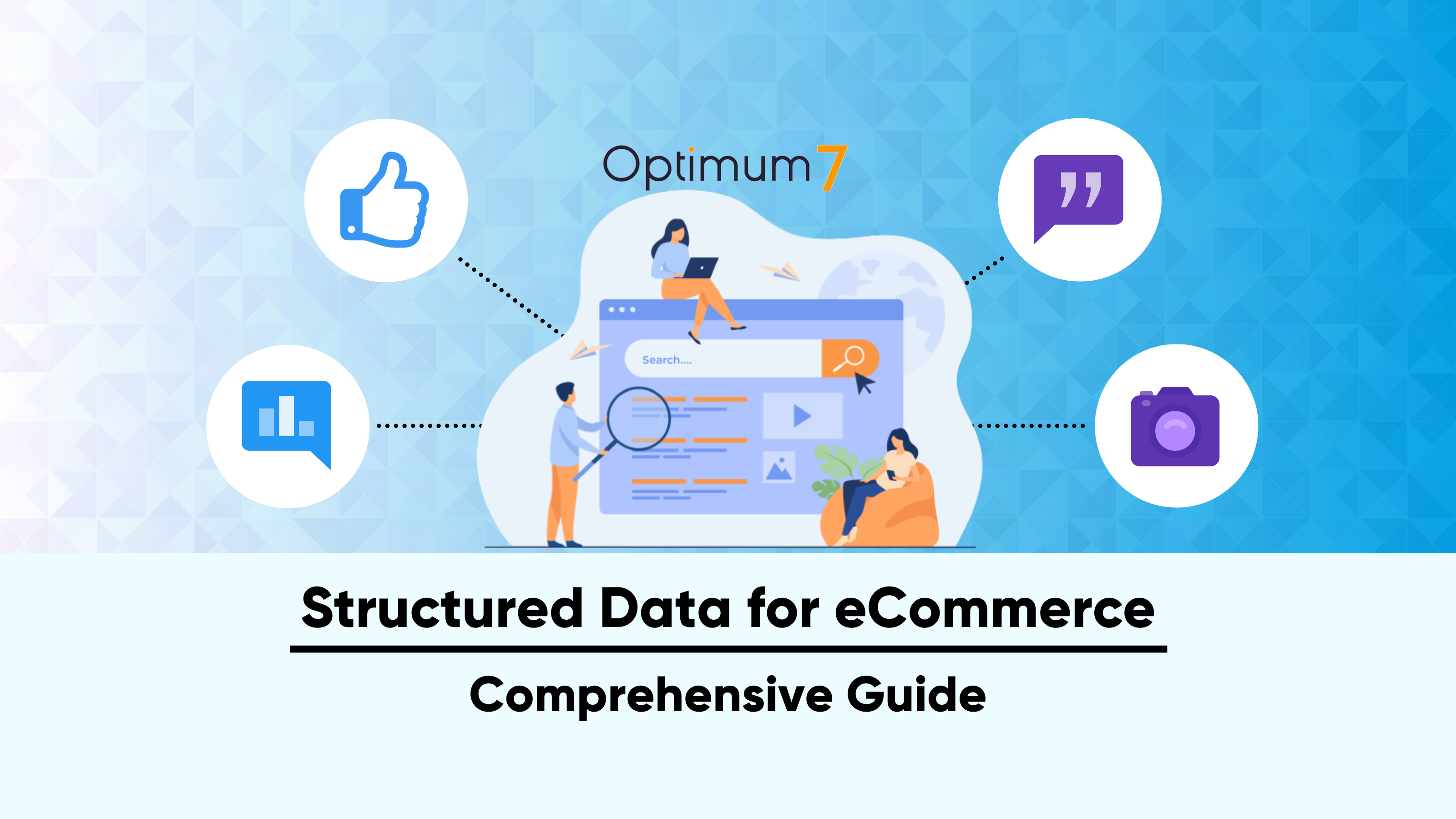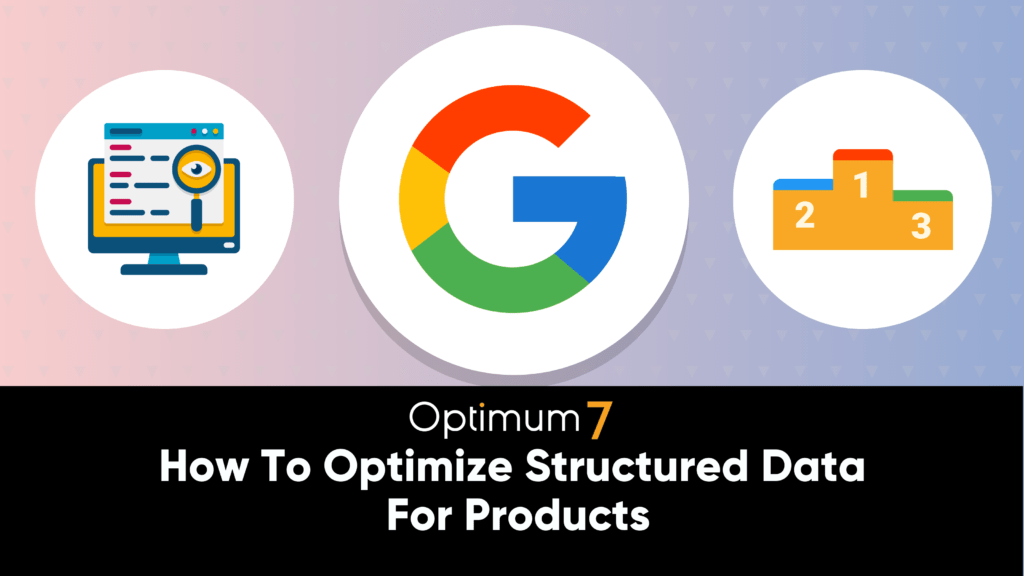Are you familiar with structured data markup, schema, or JSON-LD? Are you aware of how all these things affect your rankings on search engine results pages (SERPs), and how they can help you increase them?
Structured data is essential because it provides search engines with the semantic meaning of your content. This helps Google understand what you’re trying to say on each page, which ultimately determines where that specific information appears in SERPs and how it’s displayed for users who type something into Google or any other particular queries.
But what does structured data have to do with running your eCommerce business? And what is the meaning of semantic to Google? Don’t worry; you are at the right place. We have a comprehensive guide on how Structured data works, why you should be using it, and all the different ways it works.
What is Structured Data?
You can improve search engine results by adding structured data to your website. Many terms get thrown around in digital marketing, so it is crucial to explain structured data and schema.
Structured data is code added to a website in a standardized format. It provides information about a page and categorizes its content.
In contrast, schema is the language in which you deliver your material. This helps search engines return more informative results for users on the Google search results or the SERP. These results can show up as rich snippets.
When you search a query on search engines like Google, you will typically see the results in the form of a website’s page title, meta description, and URL. Structured data, when sufficiently added to a website, expands on the findings to give users rich results.
Google and other search engines use this information to better understand your web page’s content. Structured data helps humans and computers process information faster and more efficiently than they would otherwise do without it. This means that it directly impacts how users interact with websites.
Google supports structured data in JSON-LD, Microdata, and RDFa formats. JSON-LD is the recommended format by Google. JSON-LD is a simple Linked Data format. JSON-LD allows search engines to annotate elements on a page and structure data resulting in a more organized, better-looking web.
Structured Data for eCommerce Websites
Structured data is a way to add value to your site and increase the performance of its pages in search engines. It’s also an effective way to share information with search engines without changing your web page content.
Structured data can help eCommerce sites provide better user experiences by providing more relevant results for users’ queries. This enables them to find exactly what they’re looking for faster than ever before.
Search engine results are becoming increasingly personalized thanks to structured data. When someone searches, there will be a better chance of finding something helpful rather than finding information that is confusing or vague.
What are the Benefits of Structured Data?
Adding structured data is a method of making it easier for users to find information on your website. It assists you in increasing traffic, visibility, conversions, and sales.
You can use it to give your business an advantage over other companies by providing the information users want and need. Businesses that sell goods online, such as eCommerce businesses, will particularly benefit from this.
Although structured data is not a ranking factor for Google, it makes it easier to understand what the page is about, thus making it more likely to be displayed where it’s relevant. Structured data is just another tool for SEOs to optimize websites.
When Do You Use Schema Markup?
Let’s say you want to tell people more about a product you have on your website. Users might find it helpful to know a product’s reviews, price, and the stores it is located in. Schema markup lets them see it immediately and makes their purchasing decisions simple.
Customers want to learn more about your company before they buy from it. Therefore, you’ll need a way to provide this information in an easy-to-understand format that doesn’t get lost in translation between different devices or platforms.
This is the purpose of schema markup! It enables businesses like yours to have a more prominent presence on the search results and reach potential customers.
What is Schema.org?
Schema.org is the most widely used open standard for describing structured data on the web, and it is supported by major search engines such as Google and Bing. You can use schema.org to create a structured data markup schema for the things you describe online, such as product listings, reviews, product descriptions, and even business pages.
That way, users who search for relevant content are automatically redirected to your website.
Schema.org has been around since 2011 but has recently seen an uptick in adoption thanks to its increasing popularity among eCommerce sites looking for an easy way to improve their SEO (search engine optimization).
Types of Schema Markup
There are many different types of schema markups, each with its own purpose.
Pros & Cons Markup
The new pros and cons of structured data are a great addition to Google’s arsenal of search engine optimization tools. It allows webmasters to specify the positive and negative points of their website or product in a simple, easy-to-read format. This can be extremely helpful for potential customers who are trying to decide whether or not to buy a product or use a service.
Schema Local Business Markup
You can use schema markup to make your local business stand out. Local business schema is a type of structured data markup code that you can add to your company’s website to help search engines understand what kind of organization you are and what you do. The information that can be shown through the local business schema includes the name of the company and the company’s physical address.
Schema Article Markup
Schema Article Markup allows you to use structured data for articles and blogs. This code can give you summaries of your content, or display the logos and pictures from the piece.
Product Schema Markup
Product schema markup can be used by eCommerce website owners to provide additional information about their products to search engines. This machine-readable code can contain information like a product’s price, availability, and dimensions.
Furthermore, product schema markup can be used to display Rich Snippets in search results, which can help to attract clicks and increase the visibility of your eCommerce website. As a result, product schema markup is a must-have tool for eCommerce site owners looking to boost their search engine optimization.
FAQ Schema Markup
A web page’s code can be enhanced using a specific markup called FAQ schema to include a set of questions and answers. After adding this markup, Google uses it to produce a rich snippet.
FAQ Schema markup enables businesses to have FAQs appear on the SERP. This lets your website take more real estate on the SERP. Other results can be pushed down on the list as users navigate through your FAQ most often.
FAQ markup can be useful if a person wants to know how to stop their dog from barking at night, for example. They could use this markup language to search for “dog barking” and see all the answers. FAQ markup has been shown to increase page click-through rate and improve leads.
Breadcrumb Schema Markup
If you have a website with many pages and a complicated hierarchy, breadcrumbs are a good idea. Breadcrumb schema makes it easier to explore a site. They can be used to mark up a site’s internal structure and provide users with a way to navigate around it, improving user experience.
This is particularly important for an eCommerce site with dozens of product and category pages. Users may want to compare different products on your page or explore other sections. If a user gets lost, they can go back to the SERP and see where the page sits in the site hierarchy.
Video Schema Markup
Although search engines are getting better at understanding videos, they still rely on metadata to determine how to rank and display them. This is where video schema markup comes in.
By providing information about your video in a standardized format, you can help the search engine understand what your video is about and how it should be displayed. In addition, you can use video schema markup to tell the search engine the length of your video, whether it contains subtitles or Closed Captioning, and other valuable details.
By taking advantage of video schema markup, you can ensure that your videos are properly indexed and displayed in search results.
How to Add Schema Markup
Schema markup is easy to integrate into your website. You can choose the type of markup you need and use the Google-recommended format with easy-to-use tools like the Schema Markup Generator.
Simply choose your preferred markup and then enter the data necessary for that particular format. Following that, code for your site will be generated by the Schema markup generator. This code can be copied and pasted into your website.
How to Check if Your Schema is Correct
You need to use a tool that checks for errors to confirm that your schema is correct, and many tools are available.
The best way to do this is using a testing tool like Google’s Rich Results Test. This tool will allow you to check whether or not your schema is correct and show you any errors you might have made during the process.
Increase Your Visibility Using Structured Data
Structured data is critical for online stores because it helps search engines better understand your website’s content, categorize it, and provide detailed information about your company.
Adding structured data to your website can help Google and other search engines find it more frequently, resulting in higher SERP rankings (Search Engine Results Pages). This means that visitors looking for products similar to yours will be able to find what they’re looking for with minimal effort.








